RV air conditioners are a well-known source of breezy comfort in your RV, but how well they perform can be affected by lots of different factors, like:
- Low refrigerant levels
- Dirty/clogged air filters
- Electrical issues
- Condenser problems
If you enjoy those RV trips in summer, you are likely to encounter problems with your RV air conditioner’s cooling, as I did. In this article, I’ll share my research and knowledge on air conditioners, with actionable steps to solve common issues that you might encounter.
Mechanism Of An RV Air Conditioner
One must understand how the RV air conditioner works to identify the problems based on the symptoms accurately. An RV air conditioner works on principles similar to a home air conditioning unit. It consists of two main components which are the evaporator unit inside the RV and the condenser unit outside.
A refrigerant gas is pressurized by the condenser unit’s compressor into a high-temperature, high-pressure state. After that, the superheated gas travels to the internal evaporator unit, where a fan circulates warm air from the RV over refrigerant-containing coils. The refrigerant absorbs heat from the air as it flows through evaporating into a low-pressure gas.
When the refrigerant gas evaporatively cools the surrounding air, it absorbs heat from it. After cooling, the air is blasted back into the RV. The cycle is then repeated when the low-pressure refrigerant gas enters the compressor.
Your RV air conditioner functions essentially as a heat exchanger, moving heat from within the car to the outside through the refrigeration cycle. Even when the summer sun tries to convert your RV into an oven on wheels, this ongoing process maintains the cool and comfortable.
Common Causes Of An RV Air Conditioner Not Blowing Heat
Different factors can affect the cooling process of your RV’s Air Conditioner. In the table below, I will describe these factors as to solve the problem you must know and identify the problem.
| Factors | Description |
| Refrigerant Issues | Improper charging or low refrigerant levels brought on by leaks can interfere with the cooling operation. Keep an eye out for any ice accumulation on evaporator coils or hissing noises. |
| Airflow Blockage | When air filters or vents are obstructed, airflow is restricted, which lowers the cooling system’s efficiency. To guarantee optimum performance, clean or replace filters regularly. |
| Thermostat Problems | An inaccurately working thermostat might lead to an inaccurate temperature reading or improper regulation of the cooling cycle. Examine the thermostat readings for any anomalies and replace them as needed. |
| Electrical Issues | The electrical components of the air conditioner may be interfered with by faulty wiring, capacitors, or relays, which will reduce cooling efficiency. Pay close attention to electrical connections and troubleshoot them. |
| Condenser Unit Issues | Problems with the condenser unit like dirt build-up or coil breakage, might make it more difficult for heat to escape. Keep the condenser unit clean regularly and look for any obvious damage. |
| Excessive Heat Loads | The interior of the RV could experience more heat than the air conditioner can manage. Poor insulation, direct sunlight, or equipment producing too much heat could be the cause of this. |
| System Age And Wear | As an RV air conditioner ages, its parts could degrade or wear out, which would lower its overall effectiveness, The system must need routine maintenance if its lifespan is to be extended. |
Troubleshooting Guide
Let me take you through the step-by-step troubleshooting process to identify the cause of your RV air conditioner’s inability to blow cold air:
| Steps | Description |
| Check Thermostat Settings | Verify thermostat settings to make sure the cooling mode is on and the temperature is where you want it to be. Sometimes, it could just be an easy mistake. |
| Inspect Air Filters | Airflow may be impeded by dirty or clogged filters. For best results, remove, clean, or replace them regularly. |
| Verify Power Supply | Confirm the RV’s power source is reliable. The efficiency of the air conditioner may be impacted by low voltage or electrical problems. |
| Examine Circuit Breakers | Look for tripped breakers in the circuit breaker panel of the RV. Reset any air conditioner-related tripped breakers. |
| Inspect Refrigerant Levels | If at ease, listen for any hissing noises and look for any accumulation of ice on the coils of the evaporator. Low refrigerant levels could be a sign of a leak that has to be fixed. |
| Clean the Condenser Unit | Outside the RV, and remove any trash or impediments surrounding the condenser unit. To ensure effective heat dissipation, make sure the coils are clean. |
| Inspect Wiring And Connections | Take a close look at the air conditioner’s wiring and connections to look for any indications of wear, damage, or loose connections. Take care of any problems that are discovered by fixing the loose connections and replacing the worn outs. |
| Test Capacitors And Relays | Check the compressor and fan’s capacitors and relays if you feel confident working with electricity. Any defective part should be replaced. |
| Evaluate Ductwork and Vents | Check the ductwork for leaks or obstructions. To confirm adequate ventilation, check that all vents are open and clear of obstruction. |
| Consider Insulation And Heat Load | Evaluate your RV’s insulation and reduce its exposure to the sun. At times of maximum temperature, minimize activities that produce heat. |
| Monitor System Age | Take into account the overall state of the device if the RV air conditioner is somewhat old. Wear and tear may need the replacement of some components. |
Always put safety first and don’t hesitate to get professional help if you have any questions about any step. You should be able to recognize and take care of the most frequent problems influencing the cooling efficiency of your RV air conditioner by following this advice.
When Should You Seek Professional Help?
While DIY troubleshoots are easy for fixing common problems like a bad thermostat or an airflow obstruction, certain problems need professional expertise for accurate diagnosis and fixing.
- Refrigerant Handling:
Handling refrigerants requires special knowledge and tools. The system needs to be precisely recharged to confirm optimal function and leakage of refrigerant might be hazardous to one’s health. To confirm the safety of both the environment and the RV owner, professionals are trained to handle refrigerants.
- Electrical Complications
Intricate electrical problems include wiring, capacitors, relays, and compressors, components that require specific expertise. Neglecting electrical maintenance might result in shocks or damage to the RV’s electrical system, among other safety risks. Experts are qualified to identify and securely resolve these problems.
- Comprehensive System Diagnosis
An expert inspection offers a comprehensive understanding of the RV air conditioning system. A comprehensive inspection by an expert guarantees inspection by an expert guarantees that all potential faults are found and resolved, preventing further difficulties, if DIY troubleshooting is unable to identify the issue or if there are several problems.
- Unit Replacement Or Upgrade
Consulting a professional is crucial when dealing with an outdated, irreparable, or inefficient RV air conditioner. Experts can evaluate the unique demands of your RV and help you choose a new unit or suggest upgrades based on your needs and RV’s characteristics.
- Cooling Performance Issues Persists
If do-it-yourself fixes aren’t able to resolve the cooling performance, there may be a more serious problem. Experts are equipped with the resources and know how to carry out comprehensive diagnostics, pinpoint the source of problems, and apply exact fixes to guarantee optimal performance from the air conditioner.
- Specialized Repairs
To repair or replace components like the compressor or motor, certain equipment and knowledge are frequently needed. Experts are better suited to manage these complex jobs with efficiency, reducing the possibility of additional harm and guaranteeing the system’s longevity.
- Warranty Concerns
To adhere to the conditions of your RV air conditioner warranty, you must seek professional assistance during that time. While specialists make sure that any interventions follow manufacturer requirements and maintain warranty coverage, DIY repairs might void the warranty.
In summary, looking for professional experts in these scenarios not only prioritizes your safety but also ensures precise repairs and increases the RV air conditioner’s longevity.
Preventative Maintainance Tips List
Take into consideration these preventative maintenance suggestions to keep your RV air conditioner operating efficiently and avoid problems down the road:
- Regular Filter Maintenance: Change or clean the filters regularly, ideally every one to three months, or as directed by the manufacturer. This guarantees efficient and ideal airflow.
- Condenser Coil Cleaning: To keep your RV’s exterior condenser coils clear of debris and confirm optimal heat dissipation, clean them regularly. Include this in your regular maintenance.
- Inspect And Seal Ductwork: Examine the seals and ductwork, to confirm there are no leaks and obstructions. Use foil tape to plug any leaks so that the cool air doesn’t escape.
- Thermostat Calibration: To guarantee accurate temperature readings, calibrate the thermostat. Your air conditioner’s overall performance can be improved with this easy improvement.
- Regular Inspection: Conduct a visual inspection of the entire air conditioner system, including wiring and connections to find any signs of wear, damage, or loose components to avoid unwanted disruption.
- Confirm Proper Ventilation: Establish proper airflow by keeping the vents inside the RV unblocked. Avoid placing any furniture or objects in a position that could obstruct the vents.
- Monitor Refrigerant Levels: Even though handling refrigerant may call for expert help, cooling problems can be avoided by monitoring refrigerant levels and quickly fixing any leaks that can also occur from exposure to rain.
- Manage Heat Load: Pay attention to the amount of heat your RV is producing. When the temperature is at its highest, keep windows closed, park in shaded spots whenever you can, and limit your activity that generates heat.
- Schedule professional inspection: Take into account setting up a yearly or biannual professional technician inspection. They can verify your system is in optimal shape and spot possible upcoming problems before they become serious.
- Follow Manufacturer’s Recommendations: Adhere to the manufacturer’s maintenance guidelines and recommendations outlined in your RV air conditioner’s user manual. This confirms the correct measures taken for your specific unit.
You can greatly lower the possibility of experiencing cooling problems with your RV air conditioner and make travels consistently comfortable by implementing these preventative maintenance guidelines into your routine.

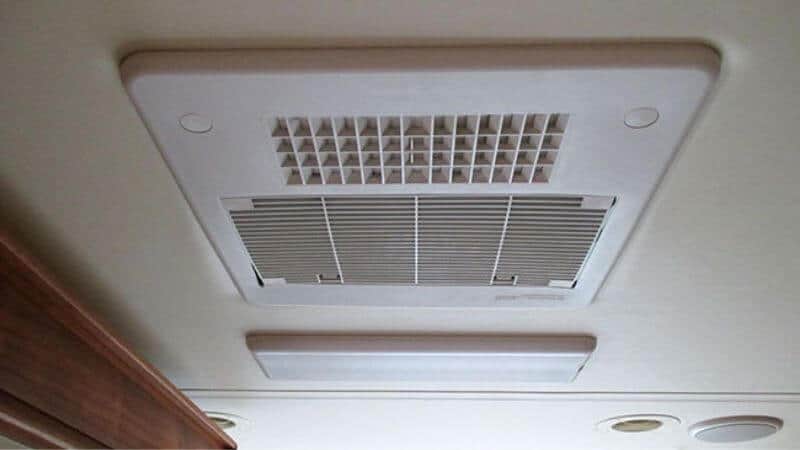
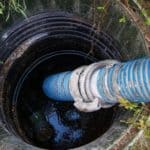
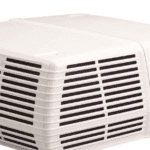
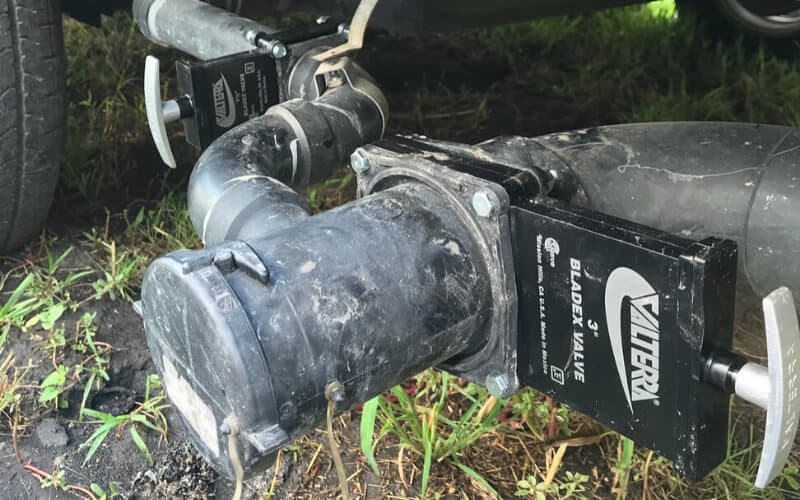
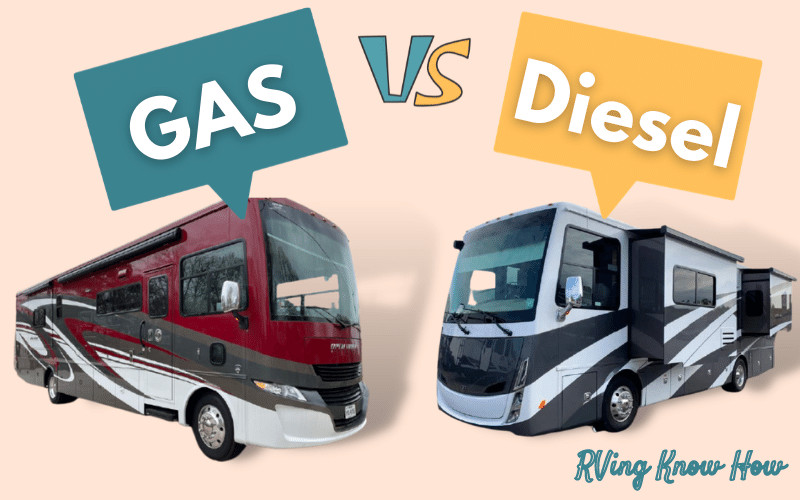
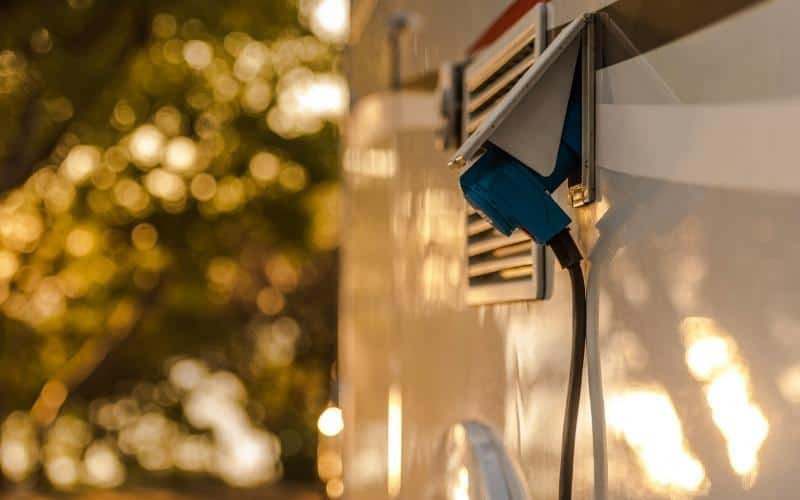
11 Comments
James Hafey
3 years agoI bought a 1999 allegro bay.
It has a Owen generator.
The generator makes a click sound when the start button is pushed.
My A/C on on but it doesn’t blow cold air.
I put 5gal. Of gas in the tank. Generator wouldn’t start but the A/C worked great for about an hour.
I never owed one before and I’m not a mechanic….any help is appreciated.
Aaron Richardson
3 years agoYou definitely have low batteries if all your getting is a clicking sound as you attempt to start the generator, use jumper cables (or jump box), or just start the rv (main engine) and let it idle for a bit then start the generator as normal, don’t forget to prime the generator as this will help it to start a little easier. Then allow both to run and charge up those house batteries or you can always plug it into shore power and allow the batteries to charge that way then start generator.
Martha
3 years agoAir conditioner working but air isn’t blowing into master bedroom
Aaron Richardson
3 years agoUsually, when you have one room in particular that is not cooling what you have is a duct problem, a duct design problem, poor air flow can make you think that the air is coming hot because the room is hot when what really happens is that you don’t have enough air to lower the temperature.
Jerry Berry
3 years agoConpresser trys to kick in but doesn’t. Have replaced 2 capacitor on the unit
Dale Krueger
2 years agoAir conditioner runs and can hear compressor kick on. But blows hot air. Camper is plugged into a 30 amp.
Diane Kelly
2 years agoMy Coleman Mach comes on, runs cold for a few hours then no more cold air. Thinking I just need to charge the freon?
Christian Withey
2 years agoI have a 2021 37 for coleman lantern travel trailer. The air conditioner seems to be working fine, but when I divert the flow to the bedrooms, it never actually gets to the bedrooms. You can feel cool air at the vents, but it’s not blowing. It’s almost as if it’s being blocked. Is there something I’m missing?
Joe
2 years agoMy ac is blowing cool air but not cold air. When the temp outside warms up the temp in the camper goes up also.
Dalton Bourne
1 year agoMy air conditioner is quite old so it makes a lot of noise. Is there any way to make the air conditioner run quieter? Thanks for this helpful article!
Michael
8 months agoI have a 2022 Thor Chateau 27R. I had set my A/C to 78 while leaving it in my driveway, hooked to shore power.
Recently, we out to my RV and it is blowing warm air. It sounds like the compressor is kicking on, but the air is not cold…not even cool. 80 degrees to be exact.
Thought it might have froze up due to extended use. Let it sit, off…for a day and a half, still no luck.
Could something else have burned up from excess use in oppressive heat?